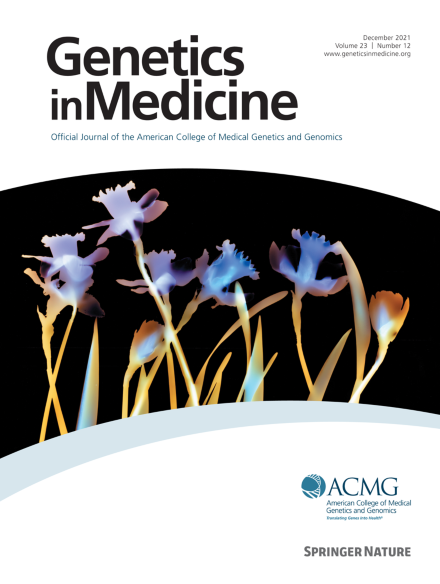How do parents decide on genetic testing in pediatrics? A systematic review
IF 6.6
1区 医学
Q1 GENETICS & HEREDITY
引用次数: 0
Abstract
Purpose
This systematic review aims to identify the factors that influence parents’ decisions regarding pediatric diagnostic genetic testing (DT) and predictive genetic testing (PT). These factors are integrated into a conceptual decision-making model. Implications for genetic counseling, research, and ethics were derived.
Methods
PubMed, PsychInfo, WebofScience, and related references were searched for original publications between 2000 and 2023. The extracted factors were categorized using existing models.
Results
Of the 5843 publications, 56 met the inclusion criteria. The included studies differentiated between DT, traditional PT, and expanded PT and described factors affecting parental decisions to have the child genetically tested and to be informed about additional findings. Factors included (1) benefits/hopes, (2) worries/concerns, (3) values and beliefs, (4) individual circumstances, and (5) emotional states.
Conclusion
Our work extends the existing empirical decision model of family decisions about genome sequencing to genetic testing in pediatrics in general, adding the categories of individual circumstances and emotional states. These factors can be further integrated into the Health Belief Model; the importance of emotional states is reflected in dual-process theories, such as the Fuzzy Trace Theory. Research is required on emotional states, differences between DT and PT, parents’ decisions regarding result disclosure, and dyadic variables as decision-making predictors.
父母如何决定在儿科进行基因检测?系统回顾。
目的:本系统综述旨在确定影响家长对儿童诊断和预测性基因检测(DT/PT)决策的因素。这些因素被整合到决策的概念模型中。对遗传咨询、研究和伦理的启示。方法:检索2000 - 2023年PubMed、PsychInfo、WebofScience及相关综述文献。提取的因素被分类到一个现有的模型中。结果:5843篇文献中,56篇符合纳入标准。纳入的研究区分了DT、传统PT和扩展PT,并描述了影响父母决定让孩子进行基因检测和了解其他发现的因素。因素包括:1;好处/希望,2。担心/忧虑,3。价值观和信仰;5.个人情况;情绪状态。结论:我们的工作将现有的关于基因组测序的家庭决策的经验决策模型扩展到一般的儿科基因检测,增加了“个体情况”和“情绪状态”类别。这些因素可以进一步整合到健康信念模型中;情绪状态的重要性体现在双过程理论中,如模糊痕迹理论。需要对情绪状态、DT与PT的差异、父母对结果披露的决定以及二元变量作为决策预测因子进行研究。
本文章由计算机程序翻译,如有差异,请以英文原文为准。
求助全文
约1分钟内获得全文
求助全文
来源期刊

Genetics in Medicine
医学-遗传学
CiteScore
15.20
自引率
6.80%
发文量
857
审稿时长
1.3 weeks
期刊介绍:
Genetics in Medicine (GIM) is the official journal of the American College of Medical Genetics and Genomics. The journal''s mission is to enhance the knowledge, understanding, and practice of medical genetics and genomics through publications in clinical and laboratory genetics and genomics, including ethical, legal, and social issues as well as public health.
GIM encourages research that combats racism, includes diverse populations and is written by authors from diverse and underrepresented backgrounds.
 求助内容:
求助内容: 应助结果提醒方式:
应助结果提醒方式:


